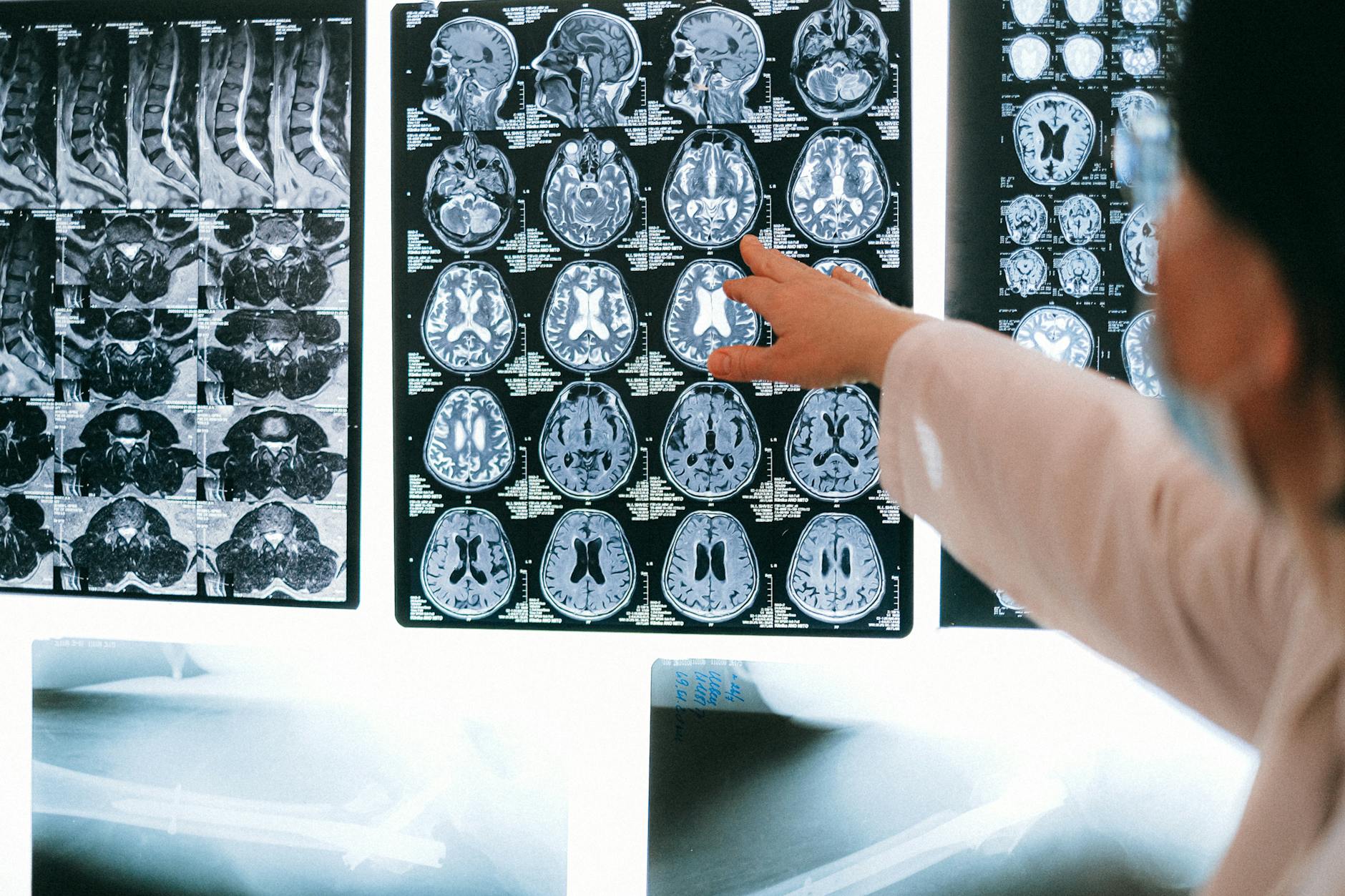Dementia and Alzheimer’s disease are growing concerns in the United States. For caregivers and the elderly, understanding these conditions and the support available is crucial for effective management. This article explores key aspects of dementia and Alzheimer’s, including statistics, signs, management options, treatment, Medicare, and preventive measures.
Understanding the Statistics of Dementia and Alzheimer’s
The numbers surrounding dementia and Alzheimer’s disease are staggering. According to the Alzheimer’s Association, over 6 million Americans are living with Alzheimer’s, and that number is projected to reach nearly 13 million by 2050. Every 65 seconds, someone in the United States develops the disease. These statistics highlight the urgent need for awareness and effective management strategies.
Alzheimer’s disease not only affects those diagnosed but also has a profound impact on their families and caregivers. The emotional and financial burden can be overwhelming, as the disease progresses and requires more intensive care. Research funding and support services are crucial in helping those affected manage daily challenges and improve their quality of life. Additionally, public health initiatives aimed at early detection and prevention could play a significant role in mitigating this growing crisis.

Recognizing the Signs of Dementia and Alzheimer’s
Early detection of dementia and Alzheimer’s can significantly impact the quality of care and support provided. Being aware of the common signs can help in seeking timely medical advice and improving the quality of life for those affected. Here are some signs to watch for:
- Memory Loss: This often involves forgetting recently learned information, important dates, or events. Repeatedly asking for the same information and increasingly relying on memory aids like notes or family members for things they used to handle on their own are also key indicators.
- Difficulty Performing Familiar Tasks: Individuals may struggle with daily activities they’ve performed for years, such as cooking, driving, or managing finances. Tasks that once seemed routine may become confusing or overwhelming.
- Confusion with Time or Place: People may lose track of dates, seasons, and the passage of time. They might forget where they are or how they got there. This disorientation can be particularly distressing for both the individual and their loved ones.
- Poor Judgment: Making poor decisions, especially involving money or personal care, is another warning sign. This could include giving large sums of money to telemarketers or neglecting personal hygiene.
- Withdrawal from Social Activities: Individuals might start avoiding social engagements or hobbies they once enjoyed. This withdrawal can be due to changes in the brain that affect how they interact with others and perceive social situations.
If you notice these signs in a loved one, it’s essential to consult a healthcare professional for a thorough evaluation. Early diagnosis allows for better planning and more effective management of the condition, and it can make a substantial difference in the well-being of both the individual and their caregivers.

Management and Support Options
Managing dementia and Alzheimer’s requires a comprehensive approach that involves medical, emotional, and social support for both affected seniors and their caregivers. It is important to consider the multifaceted needs of patients and their families, ensuring they receive holistic care that addresses both physical symptoms and emotional well-being.
Medical Management
- Medications: Cholinesterase inhibitors (such as Aricept) and memantine (Namenda) are commonly prescribed to help manage symptoms of dementia and Alzheimer’s, although they are not a cure. These medications can improve cognitive function and slow the progression of symptoms in some individuals.
- Regular Monitoring: Frequent check-ups with healthcare providers are crucial to adjust treatments as the disease progresses. This includes monitoring the effectiveness of medications, managing side effects, and addressing any new symptoms or health concerns that may arise.
Emotional and Social Support
- Support Groups: Joining support groups can provide emotional relief and practical advice for both patients and caregivers. These groups offer a sense of community, shared experiences, and strategies for coping with the challenges of dementia and Alzheimer’s.
- Respite Care: Temporary care services, such as adult day care centers or in-home respite care, can give caregivers a much-needed break. This allows them to rest, recharge, and take care of their own needs while ensuring their loved ones continue to receive quality care.
- Home Modifications: Making the home safer and more comfortable for those with dementia is essential. This can include installing grab bars, improving lighting, removing tripping hazards, and creating a structured environment that reduces confusion and anxiety.
Caregiver Support
- Education: Learning about dementia and Alzheimer’s is vital for caregivers to better understand and assist affected individuals. Education can include attending workshops, reading informative materials, and consulting with medical professionals to gain knowledge about the disease and effective caregiving strategies.
- Self-care: Caregivers must also prioritize their own health and well-being to provide effective care. This includes getting regular exercise, maintaining a healthy diet, seeking mental health support when needed, and taking time for hobbies and relaxation.
- Professional Help: Hiring professional caregivers for additional support can be beneficial. Professional caregivers can provide specialized care, assist with daily activities, and offer respite for family members. This ensures that patients receive the highest level of care and helps alleviate the caregiving burden on families.

Treatment and Medicare Options
Understanding the treatment landscape and Medicare options can significantly ease the financial burden of managing dementia and Alzheimer’s disease. Here is a comprehensive overview:
Treatment Options
- Non-Pharmacological Therapies: These include cognitive stimulation activities such as puzzles and memory games, physical exercise routines to improve overall health, and social engagement through community activities or support groups. These therapies aim to enhance the quality of life and slow the progression of symptoms.
- Pharmacological Treatments: Medications such as cholinesterase inhibitors and memantine are often prescribed to manage symptoms. These can help with memory, attention, reasoning, language, and the ability to perform simple tasks.
- Clinical Trials: Participating in clinical trials can provide access to new and potentially more effective treatments. These trials are an essential part of advancing medical understanding and developing new therapies. Patients who join clinical trials often receive cutting-edge treatments not otherwise available.
Medicare Coverage
Navigating Medicare can be complex, but understanding your options is crucial for ensuring that you receive the appropriate care without incurring overwhelming costs.
- Part B: Medicare Part B covers outpatient care, including doctor’s visits, physical therapy, and medical supplies such as wheelchairs and walkers. It also includes preventive services like screenings and vaccinations, which are critical for early detection and management of health issues.
- Part D: This part helps cover the cost of prescription drugs, which can be a significant expense for those managing chronic conditions. It includes coverage for a wide range of medications, ensuring that patients have access to necessary treatments.
- Medicare Advantage Plans: Also known as Part C, these plans are offered by private companies approved by Medicare. They provide all Part A and Part B benefits and often include additional services such as dental, vision, and wellness programs not covered by standard Medicare.
It’s crucial to review and understand the specific details of your Medicare plan to maximize coverage benefits. Consulting with a Medicare advisor or using online resources can help you make informed decisions, ensuring that you receive the comprehensive care needed for managing dementia or Alzheimer’s.

Preventive Measures
While there is no guaranteed way to prevent dementia or Alzheimer’s, adopting a healthy lifestyle may significantly reduce the risk. These measures not only benefit cognitive health but also contribute to overall well-being.
Healthy Lifestyle Tips
- Regular Exercise: Engaging in regular physical activity, such as walking, swimming, or cycling, improves blood flow to the brain, enhances cardiovascular health, and boosts mood. Aim for at least 150 minutes of moderate-intensity exercise per week.
- Balanced Diet: Consuming a diet rich in fruits, vegetables, lean proteins, and whole grains supports brain health. Foods like berries, nuts, fatty fish, and leafy greens are particularly beneficial due to their high content of antioxidants and omega-3 fatty acids.
- Mental Stimulation: Keeping the brain active is crucial. Engage in activities that challenge and stimulate the mind, such as solving puzzles, playing strategy games, reading, and learning new skills or languages. These activities help build cognitive reserve, which can delay the onset of symptoms.
- Social Interaction: Maintaining strong social connections is vital for mental well-being. Regularly interacting with friends, family, and community groups can provide emotional support and reduce feelings of loneliness and depression, which are risk factors for cognitive decline.
- Sleep Hygiene: Ensuring adequate and quality sleep is essential for cognitive function. Aim for 7-9 hours of sleep per night and practice good sleep hygiene, such as maintaining a regular sleep schedule, creating a restful environment, and avoiding screens before bedtime.
By integrating these preventive measures into daily life, individuals can potentially lower their risk of developing dementia and Alzheimer’s. Additionally, these practices promote a healthier lifestyle and improve quality of life overall. It’s never too early or too late to start making these positive changes.
Recognize the signs
Managing dementia and Alzheimer’s disease requires a multi-faceted approach. From recognizing early signs to leveraging treatment options and preventive measures, caregivers and the elderly can take proactive steps to improve quality of life.
For more personalized guidance, consider consulting with healthcare professionals and exploring available resources. Understanding and addressing these challenges head-on can make a significant difference in the lives of those affected by dementia and Alzheimer’s.
For further support and resources, explore Alzheimer’s Association and National Institute on Aging.














